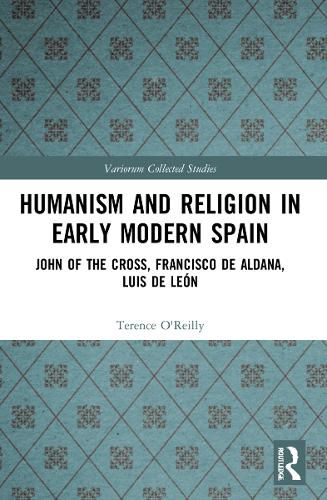Readings Newsletter
Become a Readings Member to make your shopping experience even easier.
Sign in or sign up for free!
You’re not far away from qualifying for FREE standard shipping within Australia
You’ve qualified for FREE standard shipping within Australia
The cart is loading…






Humanism and Religion in Early Modern Spain brings together twenty-five essays by renowned historian Terence O'Reilly.
The essays examine the interplay of religion and humanism in a series of writings composed in sixteenth-century Spain. It begins by presenting essential background: the coming together during the reign of the Emperor Charles V of Erasmian humanism and various movements of religious reform, some of them heterodox. It then moves on to the reign of Philip II, focusing on the mystical poetry and prose of St John of the Cross. It explores the influence on his writings of his humanist learning - classical, biblical and patristic. The third part of the book concerns a verse-epistle by John's contemporary, Francisco de Aldana. One chapter presents the text with a parallel version in English, whilst two others trace its debt to Florentine Neoplatonism, particularly the thought of Marsilio Ficino. The final part is devoted to the humanism of the poet and Scripture scholar Luis de Leon, and specifically to the confluence in his work of biblical and classical motifs.
This book is essential reading for scholars and students of early modern Spanish history, as well those interested in literary studies and the history of religion. (CS 1102).
$9.00 standard shipping within Australia
FREE standard shipping within Australia for orders over $100.00
Express & International shipping calculated at checkout
Humanism and Religion in Early Modern Spain brings together twenty-five essays by renowned historian Terence O'Reilly.
The essays examine the interplay of religion and humanism in a series of writings composed in sixteenth-century Spain. It begins by presenting essential background: the coming together during the reign of the Emperor Charles V of Erasmian humanism and various movements of religious reform, some of them heterodox. It then moves on to the reign of Philip II, focusing on the mystical poetry and prose of St John of the Cross. It explores the influence on his writings of his humanist learning - classical, biblical and patristic. The third part of the book concerns a verse-epistle by John's contemporary, Francisco de Aldana. One chapter presents the text with a parallel version in English, whilst two others trace its debt to Florentine Neoplatonism, particularly the thought of Marsilio Ficino. The final part is devoted to the humanism of the poet and Scripture scholar Luis de Leon, and specifically to the confluence in his work of biblical and classical motifs.
This book is essential reading for scholars and students of early modern Spanish history, as well those interested in literary studies and the history of religion. (CS 1102).